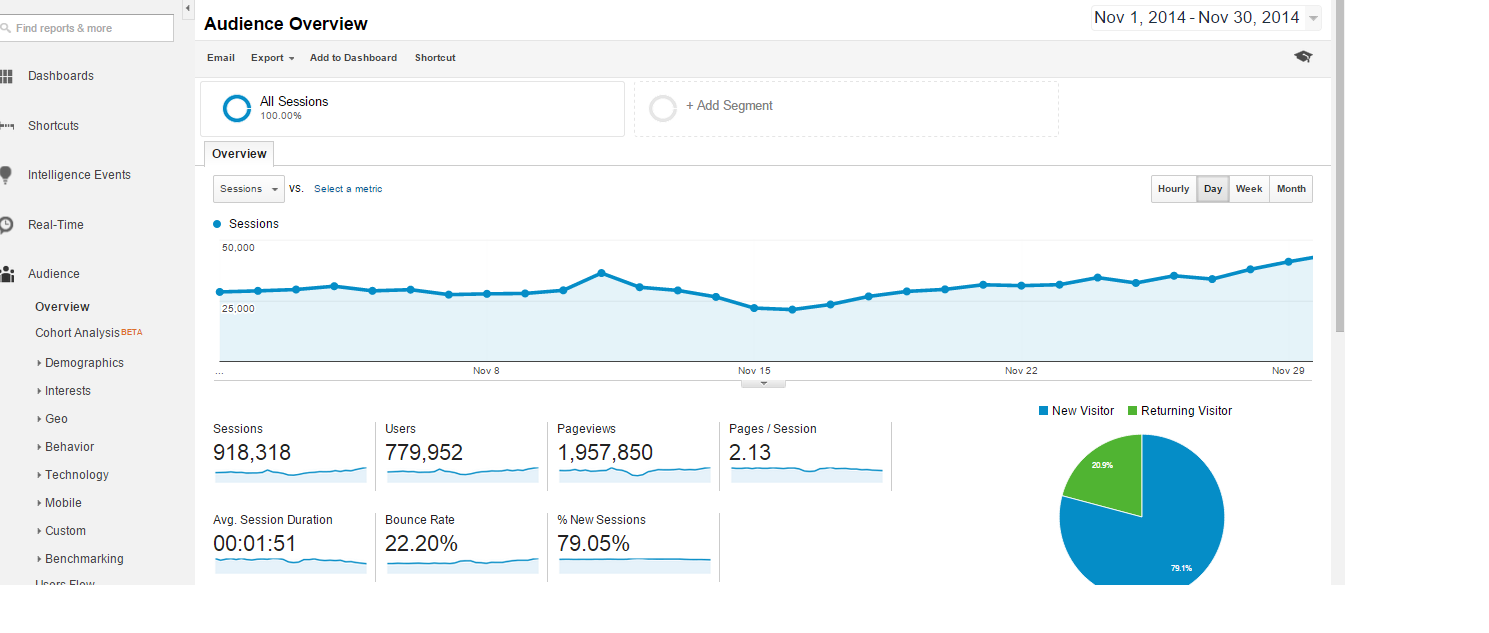Here I’ll have done the Ultimate comparison between Semrush vs Google Analytics 2024, step by step. At the end of this, you will be ready to choose the right app to conduct your online business.
Web analytics solutions like Google Analytics and Semrush are widely used by digital marketers nowadays.
If you’re wondering how Semrush stacks up against Google Analytics, though, read on! If you want to boost your website’s search engine optimization and visitor numbers, how do you choose a provider to conduct said analysis?
This article compares and contrasts Google Analytics and Semrush to help you better understand these digital marketing tools.
In the end, you’ll be able to make an informed decision about whether Semrush vs Google Analytics is the better fit for your business’s needs and budget.
Semrush vs Google Analytics: Detailed Comparison
Unlike Google Analytics, which is used to analyze your own website’s performance, Semrush allows you to analyze the performance of a competitor’s website. To analyze every website, Semrush compiles information from users, Google, and other sources.
What Is Semrush?
Semrush is a comprehensive digital marketing platform that can be used to boost your website’s visibility online and gain marketing intelligence about your competitors’ platforms.
Tools for search engine optimization (SEO), pay-per-click (PPC) advertising, social media marketing, public relations, campaign management, content marketing, and competitor analysis are all part of Semrush.
If you use my referral link, you may test out Semrush at no cost and see what it has to offer you. If you decide to switch to a paid plan at no additional cost to you.
- want to know more about semrush check out our SEMrush Review: Why Semrush Is The Best?
What Is Google Analytics?
Google Analytics is a service for analyzing the behavior of website visitors that may be used to learn useful information about how to improve a website’s usability and appeal. Google Analytics records data about website visitors, including the length of their visits, the number of pages they view, the percentage of visitors who leave without converting, their demographics, and the type of device they use.
This is where you may begin using Google Analytics. It can be used without cost by any website.
Now that you know what digital marketing tools Semrush and Google Analytics are, you can read about their primary benefits and drawbacks in the next section.
Google Analytics may not offer as many benefits as Semrush, but the data it gives is still highly helpful for directing both on-page and off-page SEO efforts, therefore every website owner should sign up for a free Google Analytics account. This is where you may begin using Google Analytics. If you want to take your profession to the next level, you may also study how to get certified in Google Analytics.
How Does Semrush Gather Analytics Data?
Semrush claims to collect data on website analytics with its own machine learning algorithms and reputable data suppliers. More than 200 million actual Internet users from over 190 different countries and regions supply the information used by the Semrush Traffic Analytics and Market Explorer products.
How Does Google Analytics Gather Data?
Google Analytics uses ‘page tags’ to collect data about how users interact with a website. The HTML code of each page is enhanced with a JavaScript element. Every time a person visits your site, a little piece of code (known as a “tag”) runs in their browser and sends information to one of Google’s data-collecting servers.
Does Semrush Integrate with Google Analytics?
If you connect the Google Analytics account for your website to Semrush, you’ll be able to access and analyze all of the data from your website in one location. Because Semrush is integrated with Google Search Console, information can be acquired from Google and analyzed within the platform.
Quick Links:
- Semrush Keyword Research: Is Semrush keyword Free?
- SEMRush vs LongTailPro: Which One Is The Best? (#1 Reason)
- Is Semrush The Best SEO Tool? Everything You Need To Know
- How to Install Google Analytics In WordPress | 3 Best Working Methods
- Oribi Vs Google Analytics: Which is the Better Option Oribi or Google Analytics?
Conclusion: Semrush vs Google Analytics 2024
Our comparison of Semrush vs Google Analytics was created with the objective of providing you with as much entertainment as possible.
According to what we’ve discovered, the most significant distinction between Semrush and Google Analytics is that the former is an outside service that monitors the website of the competitors, whilst the latter is an inside tool that is used to analyse your own website’s traffic and performance.
On the other hand, it’s possible that combining these two digital marketing tools for SEO analysis may produce even more fruitful results.
It is essential to take into account the requirements of your company at the present time before choosing between Semrush and Google Analytics. Choose Semrush if doing in-depth website analysis, research on your competitors, and gathering digital marketing information are your top objectives.
Choose Google Analytics rather if indeed the tracking and measurement of data regarding your website’s visitors is your primary concern.




